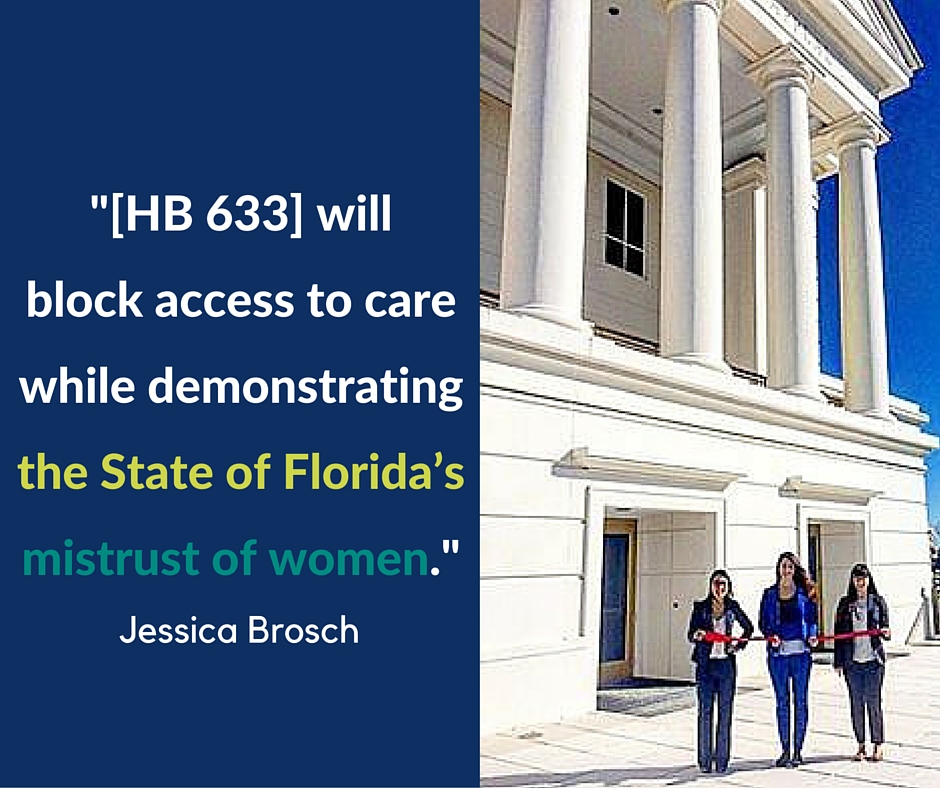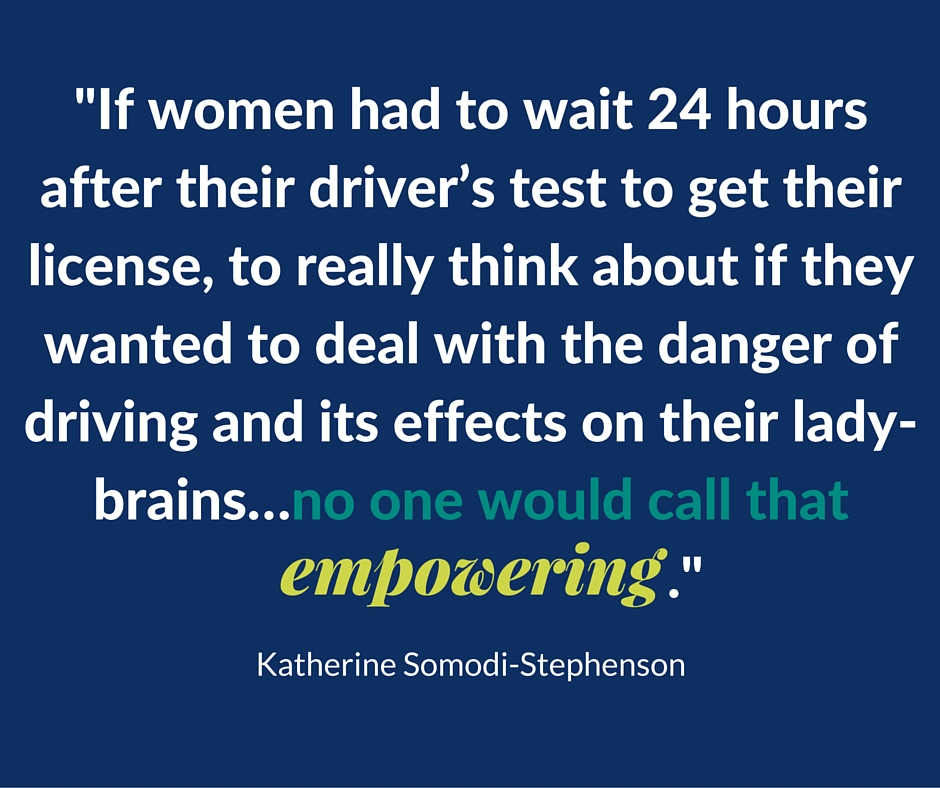Abortion restriction laws have sadly become the norm in many states in the U.S. Though many of these laws are passed under the guise of helping women, they are actually made with the intent to slowly legislate abortion until it is virtually inaccessible. One tactic we are seeing in increasing numbers is the institution of waiting periods. Last summer, the Florida House of Representatives passed such a bill. HB 633 requires any woman seeking an abortion to wait 24 hours between her initial consultation and the actual abortion procedure. Though the bill was initially signed into law, a state judge issued an injunction blocking the new law from going to effect.
MSFC is a co-plaintiff in the case against this law, and we stand alongside The Center for Reproductive Rights, the American Civil Liberties Union, the ACLU of Florida, and Bread and Roses Women’s Health Center in the effort to overturn this legislation. On February 9, 2016, several of our student activists, including Jessica Brosch and Katherine Somodi-Stephenson, were present in court to hear the beginning of arguments around the new law.
As plaintiffs in this case, our main argument against HB 633 is that it violates a Florida woman’s right to privacy. The Florida Constitution states that “[e]very natural person has the right to be let alone and free from governmental intrusion into the person’s private life.” HB 633 is an intrusion by the government into a woman’s reproductive health care choices and implies that Florida legislators believe women are incapable of making their own decisions regarding their bodies. As Katherine pointed out, lawmakers “claim time and time again that the law is somehow empowering to women. If women had to wait 24 hours after their driver’s test to get their license, to really think about if they wanted to deal with the danger of driving and its effects on their lady-brain…no one would call that empowering.”
Perhaps equally important is that this bill would present women with logistical obstacles they may not be able to overcome or afford, and may be especially difficult for low-income women, victims of rape or incest, and women whose fetus has a fatal anomaly. Jessica illustrated how this would impact women who seek care at her university’s clinic: “our local [University of Miami] hospital clinic only performs procedures on certain days of the week, so a 24 hour waiting period could easily turn into a 4 or 5 day delay depending on availability of clinic appointments. Scheduling each patient for two appointments also cuts into the time available to see other patients, who are often visiting for routine gynecologic care and contraception counseling, the very types of appointments that, if more readily accessible, could help reduce the need for abortions.” Further, Jessica pushes us to imagine a working mother having to deal with the 24 hour requirement. “Transportation to clinics, finding childcare or taking time off of work or school will turn a simple process into a cumbersome hassle at best, and at worst blocks access to care while demonstrating the State of Florida’s mistrust of women.”
For now abortion access remains threatened in Florida. And we, along with our many allies, are working hard, both inside and outside of the courtroom to change that. In an ideal world, political ideology would not affect judicial decisions. We hope the judges will come to the conclusion that women who seek abortions have just as much of a right to privacy as everyone else in Florida. But as Katherine put it, “maybe [we’re] biased.”

